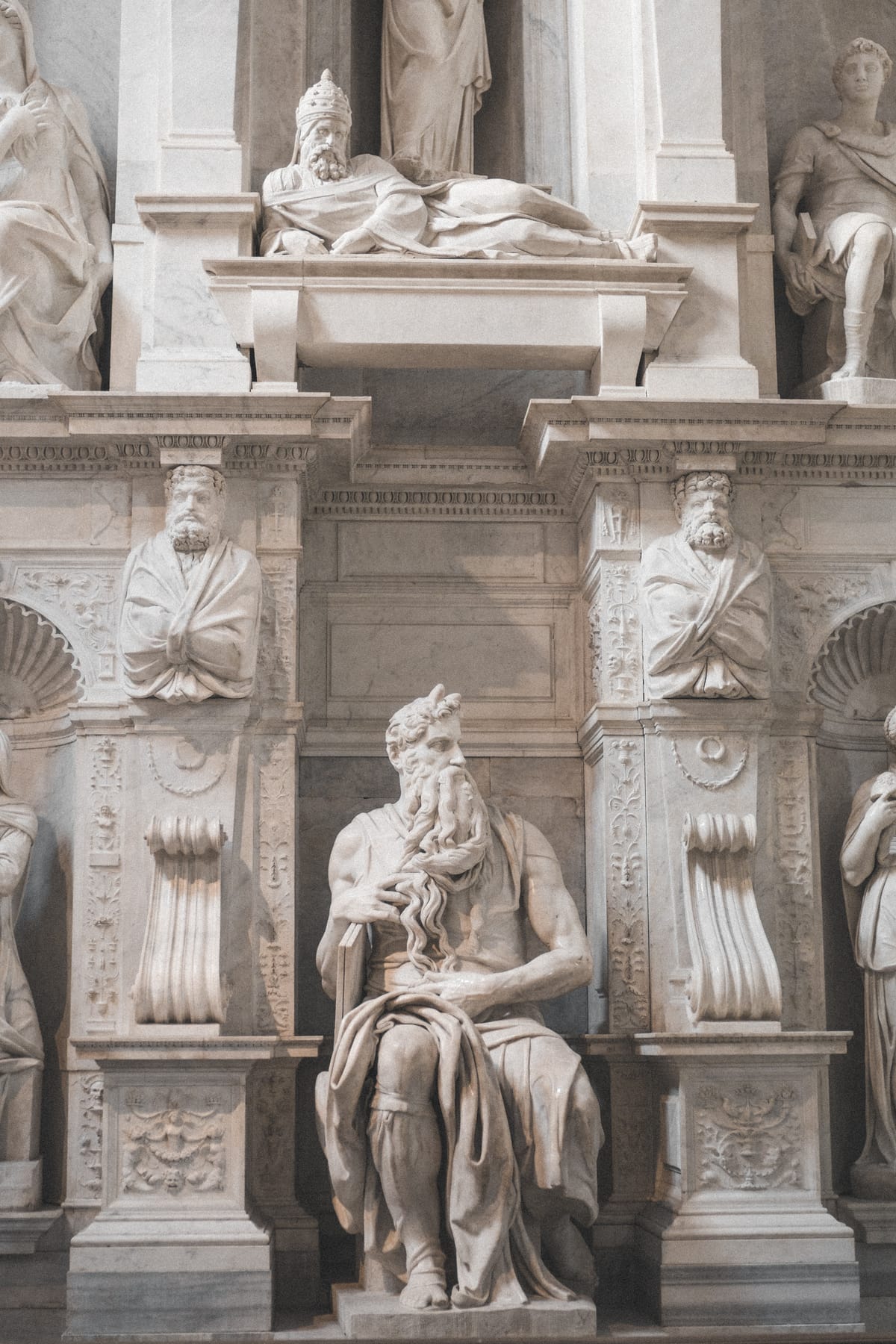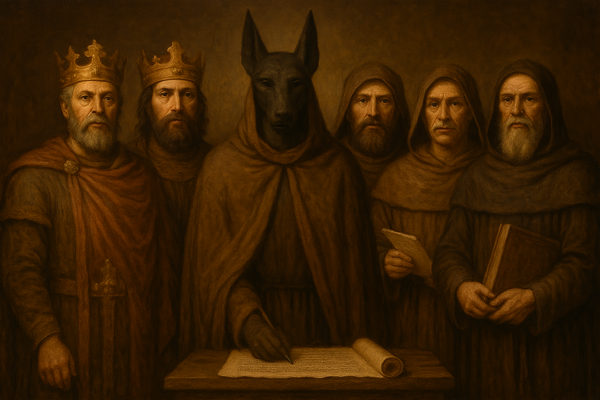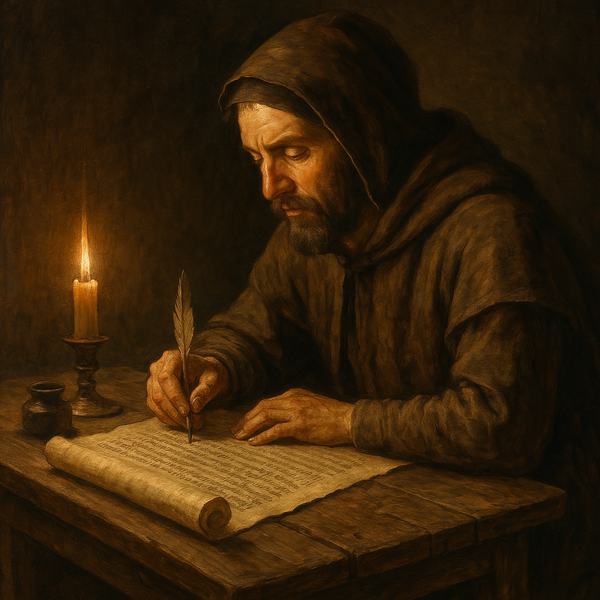The Allotment of the gods

Following the tower of Babel, God determined the cosmic regions of the earth and placed powerful angelic beings over those areas. However, they failed in their duties and accepted worship as though they were gods. God judges them for this, telling them they will die as men. This narrative is found throughout the Bible as well as narratives of other surrounding nations, in varying forms.
This narrative can be introduced from many passages, but let's start with Deuteronomy 4:19 as I feel it summarizes the situation.
Deuteronomy 4:19
And beware lest you raise your eyes to heaven, and when you see the sun and the moon and the stars, all the host of heaven, you be drawn away and bow down to them and serve them, things that the LORD your God has allotted to all the peoples under the whole heaven.
Here Moses warns God's people not to worship celestial bodies, which are always symbolic of angelic beings (The Celestial Connection). In his statement, he mentions that their God had allotted those beings to "all the peoples under the whole heaven" (everyone on earth).
Deuteronomy 17:2-3
If there is found among you, within any of your towns that the LORD your God is giving you, a man or woman who does what is evil in the sight of the LORD your God, in transgressing his covenant, and has gone and served other gods and worshiped them, or the sun or the moon or any of the host of heaven, which I have forbidden,
Again we see the warning of worshiping celestial bodies, this time as a clear description of the other gods that the one true God has forbidden His people to worship.
Deuteronomy 29:25-26
Then people will say, ‘It is because they abandoned the covenant of the LORD, the God of their fathers, which he made with them when he brought them out of the land of Egypt, 26 and went and served other gods and worshiped them, gods whom they had not known and whom he had not allotted to them.
Here we see the word allotment being mentioned, like in Deuteronomy 4, and the "other gods" of Deuteronomy 17. This connected to the Exodus narrative.
But what was this allotment?
Deuteronomy 32:8-9
When the Most High gave to the nations their inheritance, when he divided mankind, he fixed the borders of the peoples according to the number of the sons of God. But the LORD's portion is his people, Jacob his allotted heritage.
Here we get the clear description of this allotment event. God performed this allotment when he divided mankind. When did God divide mankind? When he stopped the construction of the Tower of Babel in Genesis 11.
The Bible casually mentions this division of peoples in Genesis 10:25, before we even see this event happen in the next chapter.
Genesis 10:25
To Eber were born two sons: the name of the one was Peleg, for in his days the earth was divided, and his brother's name was Joktan.
Eber apparently named one of his sons with a name that bore the meaning of the division of Babel, when the nations were divided and gods were allotted to them. 1 Chronicles echoes this statement later in the Old Testament.
1 Chronicles 1:19
To Eber were born two sons: the name of the one was Peleg (for in his days the earth was divided), and his brother's name was Joktan.
Continuing in Deuteronomy 32, we see this issue of worshiping other Gods becomes more complicated.
Deuteronomy 32:16-17
They stirred him to jealousy with strange gods; with abominations they provoked him to anger. They sacrificed to demons that were no gods, to gods they had never known, to new gods that had come recently, whom your fathers had never dreaded.
Here Moses describes God's people turning towards strange gods, demons, false gods, new gods etc... In a world of spiritual diversity the Israelites were doing it all. They were worshiping gods they had never even heard of before, while they traveled through lands most of them had never seen. This isn't coincidence, it's because gods were allotted to different areas and the ancient custom was to worship the god of that land to appease it.
Deuteronomy 32:43
Rejoice with him, O heavens; bow down to him, all gods, for he avenges the blood of his children and takes vengeance on his adversaries. He repays those who hate him and cleanses his people's land
At the end of this chapter we see a call to the heavens and all gods to bow down to the one true God for he avenges the blood of His children, takes vengeance on his adversaries, repays those who hate Him, and cleanses his people's land. This concept of cleansing the land of evil spirits is one that every ancient citizen was aware of but modern society has lost touch with. It is very real, and God takes it very seriously.
Psalm 82
God has taken his place in the divine council; in the midst of the gods he holds judgment: ... You are gods, sons of the Most High, all of you; nevertheless, like men you shall die, and fall like any prince. Arise, O God, judge the earth; for you shall inherit all the nations!
Here we see a Psalm describing God judging the gods he had allotted to the nations. Those who He placed in power, abused it. He then curses them to die like men, after describing them as His own children.
Acts 17:26
And he made from one man every nation of mankind to live on all the face of the earth, having determined allotted periods and the boundaries of their dwelling place,
Here in the New Testament we see a reference to the allotment as well.
2 Kings 17:26
So they spoke to the king of Assyria, saying, “The nations whom you have carried away into exile in the cities of Samaria do not know the custom of the god of the land; so he has sent lions among them, and behold, they kill them because they do not know the custom of the god of the land.”
2 Kings 17 uses the phrase "the god of the land", again referring to the known concept that gods were assigned territorial governers of land and people.
It just so happens that Plato describes the world being allotted to the gods multiple times in his Socratic dialog of Timaeus and Critias.
In the days of old, the gods had the whole earth distributed among them by allotment.
Now different gods had their allotments in different places which they set in order.
I have before remarked in speaking of the allotments of the gods, that they distributed the whole earth into portions differing in extent, and made for themselves temples and instituted sacrifices.
Even the ancient polytheistic Greeks accepted the fact that their gods had allotments of land that they ruled. This concept in modern theology is referred to as Cosmic Geography.
Cosmic Geography
Related passages in terms of cosmic geography (allotments)
- Samuel 26:16 points to the concept of worshiping the god of whatever land you reside in
- 2 Kings 5:17-19 king Naaman wants to bring home dirt from the land of Israel so that when he worships in the land ruled by a different god he will be able to worship on the dirt of the land of Israel and honor God in that way
- 2 Kings 18:35 (Isaiah 36:20) Rabshakeh's taunt describes a 1-to-1 connection between gods and their countries and God and Jerusalem
- Daniel 10:13,20-21 speaks of the prince of Persia, Greece, and Israel contending with one another
- Daniel 12:1 names Michael as the official prince of Israel who is in charge of protecting God's allotment
Acts 2 connects the day of Pentecost to the tower of Babel (by using the same words and phrases), showing God is now welcoming the nations back into His family and abolishing the allotments in His own eyes.
The Same gods
Most people recognize that the Greeks and Romans shared gods in their pantheistic beliefs that had the same functions but different names, and this is true. The Greeks and the Romans, however, were not alone in their shared conception of divine designations. It was accepted by the ancient world that there were specific gods with specific abilities and they ruled specific regions.
| God | Greek | Roman | Egyptian | Mesopotamian |
|---|---|---|---|---|
| Sky god | Zeus | Jupiter | Amen-Ra | Anu |
| Earth goddess | Gaia | Terra | Nut | Ki |
| Sun god | Apollo | Sol | Ra | Shamash |
| Moon god | Artemis | Luna | Khonsu | Sin |
| War god | Ares | Mars | Set | Marduk |
| Love goddess | Aphrodite | Venus | Hathor | Ishtar |
| Wisdom god | Athena | Minerva | Thoth | Enki |
| Death god | Hades | Pluto | Osiris | Nergal |
| Fertility god | Demeter | Ceres | Isis | Inanna |
| Water god | Poseidon | Neptune | Hapi | Enki |
| Storm god | Zeus | Jupiter | Set | Adad |
| Trickster god | Hermes | Mercury | Thoth | Enki |
| Creator god | Gaia | Terra | Atum | Marduk |
| Mother goddess | Gaia | Terra | Mut | Ninhursag |
| Warrior goddess | Athena | Minerva | Neith | Ishtar |
| Goddess of love and beauty | Aphrodite | Venus | Hathor | Ishtar |
| Goddess of wisdom | Athena | Minerva | Thoth | Ninhursag |
| Goddess of the underworld | Persephone | Proserpina | Isis | Ereshkigal |
For practical reasons, I have listed only a short list of gods named by only 4 regional cultures, but the fact is that there are many more gods and many more nations that all agree on them. Over time, the culture's understanding of the gods does change. As gods conquer each other's lands their territory is described differently throughout time and sometimes their functions fluctuate and overlap with each other, much like the nations themselves.
Why did God allot humans over to the gods?
Acts 17:24-27The God who made the world and everything in it, being Lord of heaven and earth, does not live in temples made by man, 25 nor is he served by human hands, as though he needed anything, since he himself gives to all mankind life and breath and everything. 26 And he made from one man every nation of mankind to live on all the face of the earth, having determined allotted periods and the boundaries of their dwelling place, 27 that they should seek God, in the hope that they might feel their way toward him and find him. Yet he is actually not far from each one of us,
Acts 17:24-27 tells us that God allotted mankind their different regions so that they would find him. How does this make sense? Well, he separated the people at the tower of babel because they sought to do things in their own power.
Genesis 11:4Then they said, “Come, let us build ourselves a city and a tower with its top in the heavens, and let us make a name for ourselves, lest we be dispersed over the face of the whole earth.”
God says in Genesis 11:6 that the way things were, humans could do anything they put their minds to.
Genesis 11:6And the LORD said, “Behold, they are one people, and they have all one language, and this is only the beginning of what they will do. And nothing that they propose to do will now be impossible for them.
They were not relying on God. By separating them, humans could be humbled once more and hopefully find their way to the God that made them.
Not only that, but it is by choosing Abraham to start a new nation of God's allotment that God saves the whole world throughout all time by means of Jesus Christ.
References
- Herodotus, Histories, translated by A. D. Godley, Loeb Classical Library, Vol. 1, Book 2 (Cambridge, MA: Harvard University Press, 1920), p. 118.
- Diodorus Siculus, Library of History, translated by C. H. Oldfather, Loeb Classical Library, Vol. 8 (Cambridge, MA: Harvard University Press, 1935), pp. 309-311.
- Tacitus, Germania, translated by H. Mattingly, Loeb Classical Library, Vol. 1 (Cambridge, MA: Harvard University Press, 1914), p. 14.
- Flavius Josephus, Antiquities of the Jews, translated by William Whiston, Hendrickson Publishers, 1987, p. 33.
- Polybius, Histories, translated by F. W. Walbank, Loeb Classical Library, Vol. 4 (Cambridge, MA: Harvard University Press, 1962), p. 355.
- Strabo, Geography, translated by H. L. Jones, Loeb Classical Library, Vol. 7 (Cambridge, MA: Harvard University Press, 1924), p. 323.
- Plutarch, Isis and Osiris, translated by Frank Cole Babbitt, Loeb Classical Library, Vol. 50 (Cambridge, MA: Harvard University Press, 1936), pp. 305-306.
- Ammianus Marcellinus, Res Gestae, translated by J. C. Rolfe, Loeb Classical Library, Vol. 3 (Cambridge, MA: Harvard University Press, 1939), pp. 180-181.
Dr. Michael Heiser does a fantastic job describing many of the aspects discussed in this article. I highly encourage you to watch his 45 min lecture on this topic.




